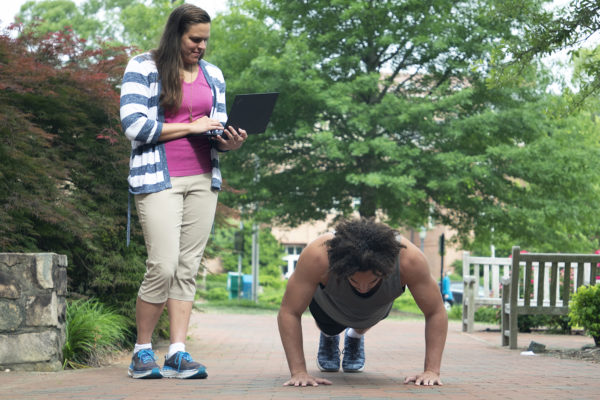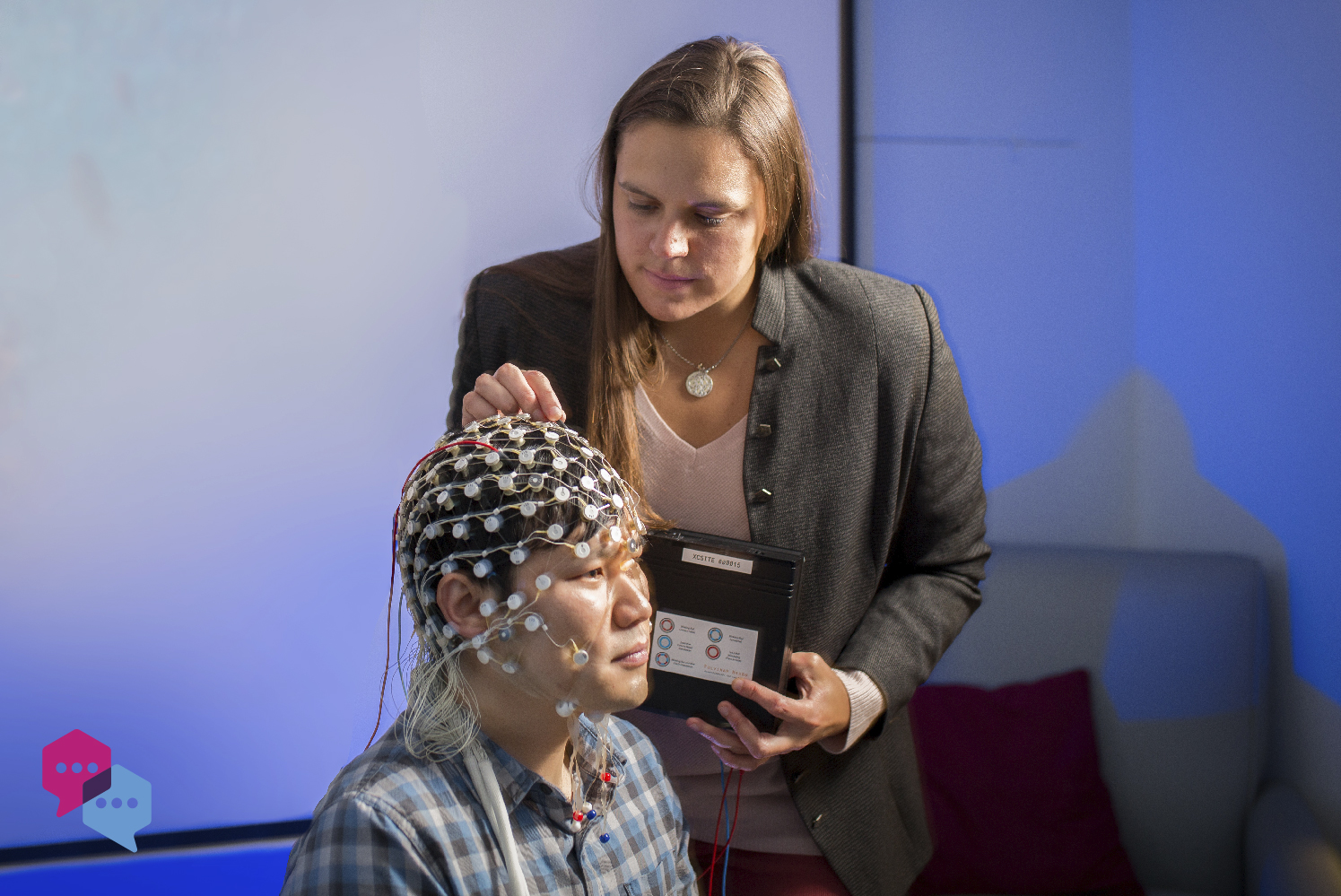Q: When you were a child, what was your response to this question: “What do you want to be when you grow up?”
A: A famous athlete. Being in a family of teachers — both my parents, grandma, and sister — the one thing I did not want to be was a teacher. Yet over the years, I began to see the difference teaching could make. I have a passion to inspire others and hope to do that as a professor one day. So maybe teaching is in the genes after all!
Q: Share the pivotal moment in your life that helped you choose your field of study.
A: Since high school, I have enjoyed science and chose biology as a major since there were so many professional options. I originally planned for medical school, but after shadowing numerous doctors, I realized I was not built for the medical field as a clinician. I started doing research in the neuroscience field as an undergrad, and while I learned many interesting techniques, it was difficult to feel like I was helping people. My advisor at UNC, Karen McCulloch, was willing to help me make the transition from foundational science to applied research. Now, I focus on the rehabilitation and return to activity and duty for service members after sustaining a mild traumatic brain injury (mTBI). My grandpa served in the Army during WWII before mTBI was really understood, and I feel like this important field of research can honor his memory.
My other research focus is in the neuroscience of chronic pain, which is highly prevalent within military and civilian populations alike. During my second year here, I met Flavio Frohlich and under his direction I completed a pilot study where we investigated chronic pain within the brain and effects of noninvasive brain stimulation. I’m from Appalachia, where the opioid epidemic remains a large problem. I know many individuals suffering from chronic pain with limited treatment options. The close connection that I have to both of these areas and the mentorship I have received have led me to my field of study.

For her research in Karen McCulloch’s lab, Prim monitors PT student Ryan Brooks as he completes a push-up test for concussion testing protocols. (photo by Alyssa LaFaro)
Q: Tell us about a time you encountered a tricky problem. How did you handle it and what did you learn from it?
A: Within the field, I see many problems that I want to solve with numerous questions to address. Having multiple research interests, it was difficult for me to narrow my focus. Yet, when designing a study, it needs to be realistic and well-controlled. I had to learn that no one study will be able to answer all my questions, but a well-designed smaller one will provide insight that is integral for the development of solutions to the larger problems. Patience and perseverance are key. In my opinion, no one study can change the world, but each one acts as a step that helps make progress toward the ultimate goal.
Q: Describe your research in 5 words.
A: “Stimulate the brain, reduce pain.”
Q: What are your passions outside of research?
A: Athletics, coaching, and adventures of any kind. Staying connected with my community, including family and friends, is very important to me. Balance adds variability and perspective and refreshes the mind and body. In a demanding, strenuous environment — whether that be school, work, or sports — it is easy to let a solitary thing define you. Yet ultimately, each of us are more than one aspect of our lives. Every day, some things go right, and some things go wrong. My faith helps me keep a larger perspective and find joy in small things, steadying me in an ever-changing world.


